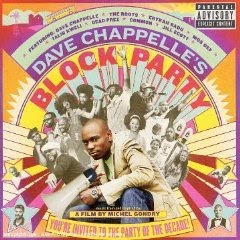Even though Malcolm X did not really live during the Black Arts Movement, I think it is still very important to mention him, since he was the one that actually started it. With his speeches and teachings he inspired people and gave them strength to move forward in achieving their rights.
Malcolm X (born: Malcolm Little) was born in 1925 as the son of Earl and Louise Little. His father was the leader of the Universal Negro Improvement Association (UNIA) and spoke out loudly for the rights of blacks. So Malcolm had already been in contact with anti-white movements from his early years on. It also was his father, that taught him the values of black pride and self-reliance. The rest of his childhood was not very pleasant because his father was murdered by the Black Legion, a white supremacist group, and his mother had a nervous breakdown and was brought to a mental hospital.
During his early adult years, Malcolm went to High school and was one of it’s best students. But when one of his white teachers told him that his wish to become a layer was “no realistic goal for a nigger” everything changed for Malcolm and he dropped out of school. He did not see the sense in going to school and learn if the world would not accept a black man no matter how intelligent he is.
Malcolm then moved to New York where he started some illegal activities, like gambling and robbery that later brought him to jail. There he started to educate himself and found new interest in books and education. He also became a muslim and a member of the “Nation of Islam” that, like the UNIA, preached black self-reliance. After he came out of prison, Malcolm spend the next twelve years of his life working for the Nation and became one of it’s most popular members.
In 1964, however, he left the organization because of conflicts that had risen between him and the Nation’s leader Elijah Muhammad. He then founded “Muslim Mosque, Inc.”, a religious organization and the “Organization of Afro-American Unity”, a secular group that advocated black nationalism. After that, Malcolm X spent some time traveling. He visited Africa, France and the United Kingdom but also Mecca, where he made his pilgrimage to Mecca.
Back in the US he started to speak and preach again and became even more popular than before. He spoke at regular meetings of his newly founded communities but also before some political groups. People also say that he enjoyed speaking to college students and that he never missed such an opportunity.
With the growth of his popularity and the aggression of his speeches, also conflicts with the Nation of Islam became more serious. Malcolm started to receive dead threats against him and even assassinations against him and his family took place.
Finally, on February 21, 1965, one year after he had left the Nation of Islam, he was assassinate during one of his speeches in Manhattan’s Audubon Ballroom. Three men from the crowd shot him in the chest 16 times. Malcolm then died on the way to the hospital. The three men, all members of the Nation of Islam were later caught and convicted. However, Elijah Muhammad, the leader of the Nation, always denied in later interviews that his organization had anything to do with Malcolm’s assassination. His only command was that “We know such ignorant, foolish teachings would bring him to his own end.”
At the following funeral on February 27, 1965, thousands of mourners came to show their grief. Malcolm X was then buried at Ferncliff Cemetery in Hartsdale, New York.
Malcolm X’s assassination led to a great wave of fury among the black population. A lot of people arose in anger and started to found communities of their own to advance the movement for their right. Also many very popular and important people during the Black Arts Movement, found their inspiration and incentive in Malcolm X’s person and speeches.
So, even though Malcolm X did not really participate in what we today call the Black Arts Movement, he still was one of the most influential and inspiring people during this time and the foundation stone of the movement.
Sources:
- wikipedia: http://en.wikipedia.org/wiki/Malcolm_X
-the official website of Malcolm X: http://www.malcolmx.com/
- Malcolm X: A Profile: http://www.koranselskab.dk/profiler/malcolmx.htm




 The first Block Party was deejayed by DJ Kool Herc
The first Block Party was deejayed by DJ Kool Herc The block party has transformed over the past 40 years into movies and family time. For example in 2005 Dave Chappelle made a documentary called Dave Chappelle's Block Party. He held the party in Brooklyn and brought together numerous artists together to perform such as Kayne West, Mos Def, and the Fugees. He did this to bring together the citizens of Brooklyn to enjoy a once in a lifetime free block party with music, comedy, history, and community.
The block party has transformed over the past 40 years into movies and family time. For example in 2005 Dave Chappelle made a documentary called Dave Chappelle's Block Party. He held the party in Brooklyn and brought together numerous artists together to perform such as Kayne West, Mos Def, and the Fugees. He did this to bring together the citizens of Brooklyn to enjoy a once in a lifetime free block party with music, comedy, history, and community.

